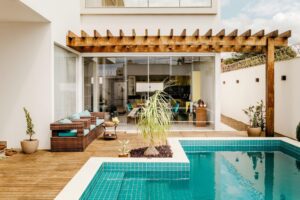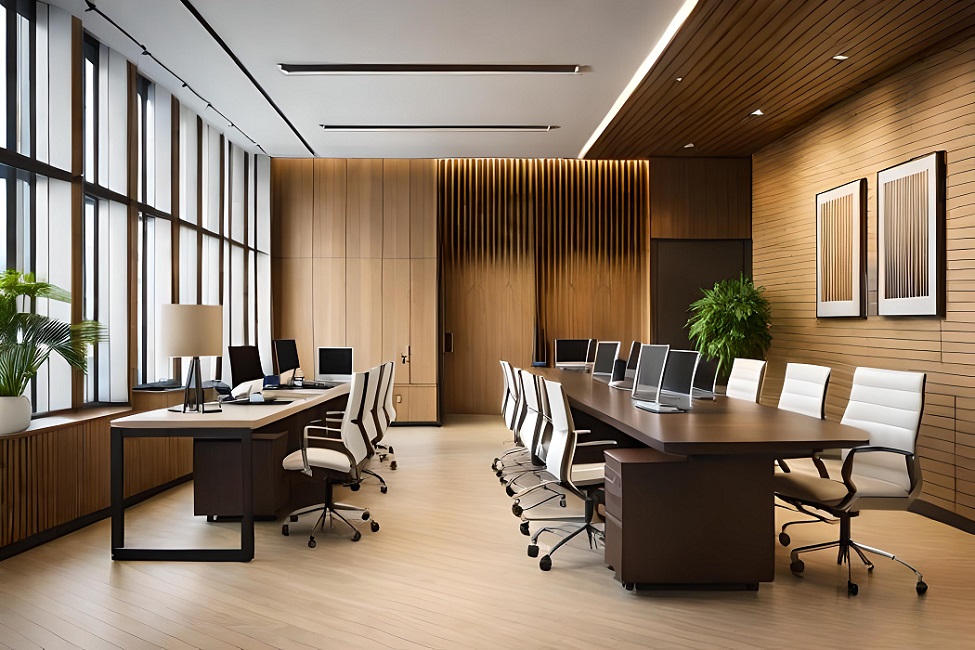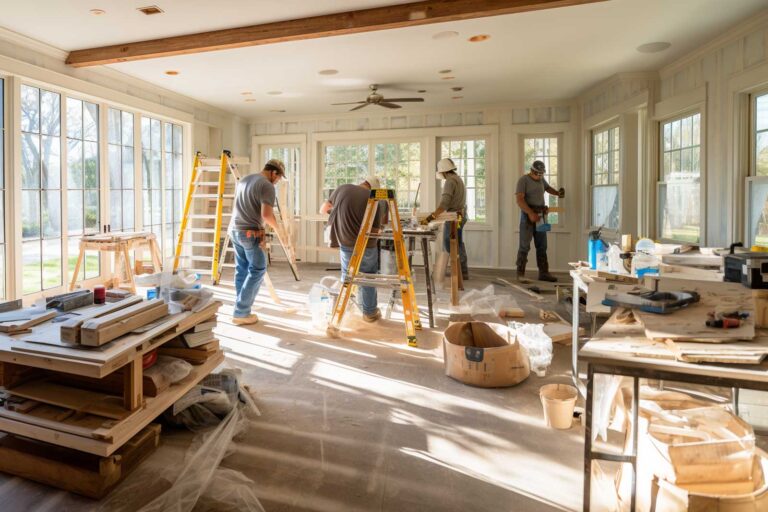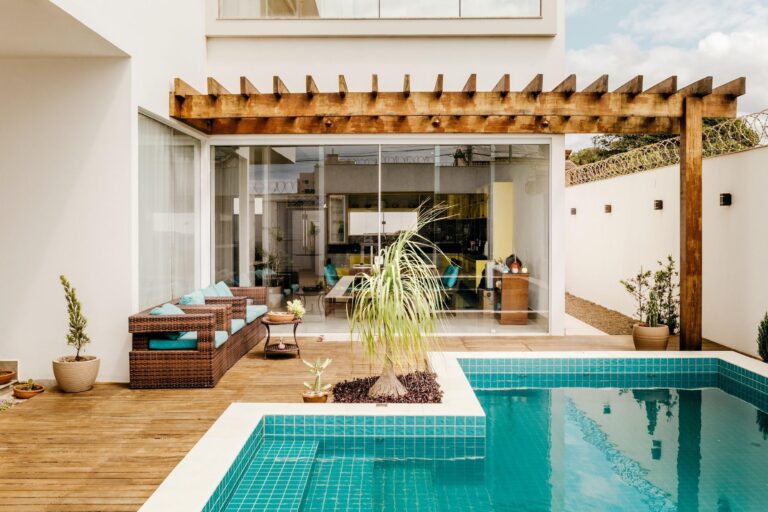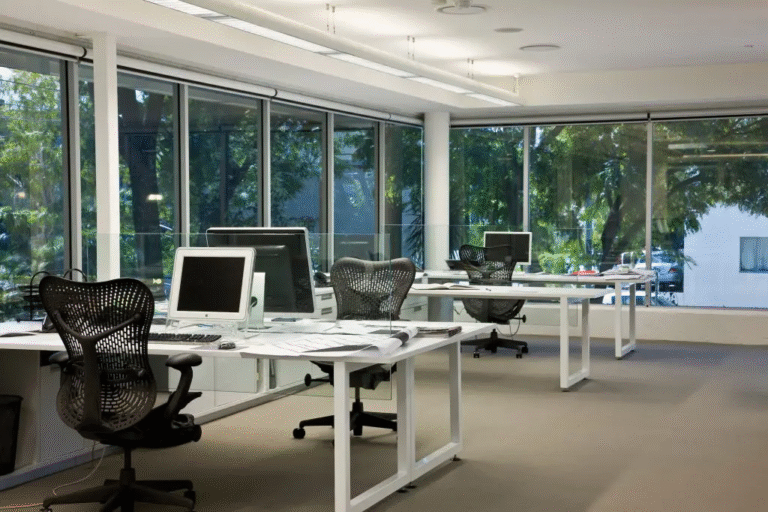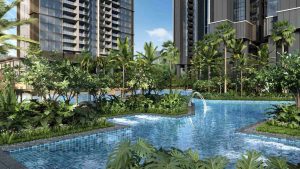In today’s competitive business landscape, the importance of office interior design cannot be overstated. The design of a workspace plays a vital role in shaping the productivity and well-being of employees. This article aims to shed light on the expertise of office interior designers in Singapore and their contribution to creating inspiring workspaces.
Understanding Office Interior Design
Office interior design refers to the planning, organization, and arrangement of the interior space in an office environment. It involves the thoughtful selection and arrangement of furniture, fixtures, colors, materials, lighting, and other design elements to create a functional and aesthetically pleasing workspace that supports the needs and goals of the organization and its employees.
Key elements of effective office design
Layout and Space Planning: The layout of an office should be carefully designed to optimize the available space and promote efficient workflow. It should consider factors such as the arrangement of workstations, meeting rooms, common areas, and circulation paths to ensure a smooth and productive work environment.
Ergonomics: Ergonomic design focuses on creating a workspace that is comfortable and supports the physical well-being of employees. It involves selecting ergonomic furniture, such as adjustable chairs and desks, and ensuring proper placement of computer monitors, keyboards, and other equipment to reduce the risk of strain and injury.
Lighting: Adequate lighting is crucial in an office environment. Natural light should be maximized, and artificial lighting should be carefully designed to provide a well-lit and balanced workspace. Proper lighting can enhance productivity, reduce eye strain, and create a positive atmosphere.
Color and Materials: The selection of colors and materials in an office design can significantly impact the mood and atmosphere. Neutral and calming colors promote focus and concentration, while pops of vibrant colors can stimulate creativity. Materials should be durable, easy to maintain, and in line with the desired aesthetic and brand identity.
Acoustics: Effective office design takes into account sound control to minimize distractions and create a productive environment. This may involve incorporating sound-absorbing materials, strategic placement of furniture and partitions, and the use of white noise or sound masking systems to reduce noise disturbances.
Benefits of Professional Office Interior Design
Boosting employee productivity and morale: A well-designed office can positively impact employee productivity by providing a comfortable and inspiring environment. Thoughtful design elements, such as ergonomic furniture, proper lighting, and an organized layout, can help employees feel more motivated and focused, leading to increased productivity and job satisfaction.
Enhancing collaboration and communication: Office design can encourage collaboration and communication among employees by incorporating open workspaces, collaborative areas, and comfortable meeting spaces. Strategic placement of departments and teams can foster interaction and idea-sharing, leading to improved teamwork and innovation.
Creating a positive work environment: A visually appealing and functional office design can contribute to a positive work environment. When employees feel comfortable and happy in their surroundings, it can improve their overall well-being and job satisfaction. A positive work environment can reduce stress levels, increase employee engagement, and promote a sense of belonging.
Attracting and retaining talent: A thoughtfully designed office can be a powerful tool for attracting and retaining top talent. Job seekers often consider the work environment when evaluating potential employers. An aesthetically pleasing and well-designed office space can leave a lasting impression, signaling that the company values its employees and their work experience.
Improving brand perception and client impressions: The office design can reflect the company’s brand identity and values, influencing how both employees and clients perceive the organization. A well-designed office that aligns with the brand can create a positive impression on clients, instill confidence, and enhance the overall reputation of the business.
Office interior design encompasses various elements and considerations to create a functional, appealing, and productive workspace. A professionally designed office can improve employee well-being, foster collaboration, attract talent, and enhance the overall perception of the organization.
Exploring the Office Interior Design Process
The office interior design process involves several key stages. It starts with an initial consultation and project brief, where designers gather essential information about the client’s requirements. Site analysis and space planning are then conducted to optimize the layout and flow of the workspace. Design concepts and mood boards are developed to visualize the proposed ideas, followed by material selection and sourcing.
Innovative Office Design Trends in Singapore is known for embracing innovative office design trends. The focus on sustainability and eco-friendly practices has led to the integration of green elements and biophilic design, creating nature-inspired workspaces. Open-plan layouts and flexible workspaces have gained popularity, fostering collaboration and adaptability. Additionally, the integration of technology has resulted in smart office environments, enhancing productivity and efficiency.
Maximizing Space Efficiency and Functionality
Designing for small and limited office spaces is a common challenge. Office interior designer Singapore employs creative strategies to maximize space efficiency. They utilize clever storage solutions, such as built-in cabinets and modular furniture. Multipurpose furniture and flexible designs are also employed to optimize functionality and adaptability.
Enhancing Employee Productivity and Well-being
Employee productivity and well-being are greatly influenced by office design. Office interior designers prioritize ergonomic considerations to ensure optimal comfort and health. They harness natural light and implement proper lighting design for a pleasant working environment. Moreover, they create spaces for relaxation and collaboration, promoting a positive work culture.
The Power of Colors and Branding
Colors have a profound impact on mood and productivity. Office interior designers understand the psychology of colors and incorporate them strategically to create stimulating or calming atmospheres. Furthermore, they align office design with branding and corporate identity, reinforcing the company’s image and values. Visual cohesiveness and inspiring spaces help to motivate employees and visitors alike.
Striking a Balance
Privacy and Collaboration Balancing privacy and collaboration is crucial in office design. Designers create spaces that cater to individual work and focus, such as private offices or quiet zones. Simultaneously, they promote collaboration and team interactions through the use of open layouts, communal areas, and shared spaces. Innovative solutions, like soundproof booths and flexible partitions, help address privacy concerns in open-plan environments.
Integrating Technology for Seamless Workflows
Technology plays a vital role in modern office environments. Office interior designers integrate smart office features and automation systems to streamline workflows. These technologies enhance communication, connectivity, and productivity. Moreover, designers create conducive environments for remote work and digital collaboration, facilitating efficient operations.
Nurturing a Healthy and Sustainable Workplace
Creating a healthy and sustainable workplace is a top priority for office interior designers. They prioritize indoor air quality and ventilation by selecting eco-friendly materials and incorporating proper ventilation systems. Green elements and biophilic design concepts are integrated to bring nature indoors, promoting a sense of well-being. Designers also encourage sustainable practices among employees, such as recycling and energy conservation.
Showcasing Success Stories
Noteworthy Office Designs in Singapore To gain inspiration and insights, it’s worth highlighting some noteworthy office designs in Singapore. These projects showcase the expertise and creativity of office interior designers in the region. From innovative tech startups to established corporate headquarters, each design tells a unique story and reflects the specific needs and branding of the organizations.
By examining these success stories, businesses can learn from the design concepts, key features, and the positive impact these exceptional office designs have had on employee morale, productivity, and overall business success. Some notable examples include vibrant and collaborative spaces with open-plan layouts, thoughtfully designed breakout areas, and ergonomic workstations that promote comfort and well-being.
Budgeting and Cost Considerations
Budgeting is an important aspect of office interior design projects. The factors that influence costs include the size of the workspace, the complexity of design requirements, material selection, and the extent of renovation or construction involved. Office interior designers in Singapore can provide guidance on cost-saving strategies, such as prioritizing key areas, utilizing cost-effective materials without compromising quality, and exploring different budgeting options.
Balancing quality and affordability is crucial when making design decisions. Working closely with the office interior designer and setting realistic expectations can help businesses achieve a successful outcome within their budgetary constraints.
Hiring an Office Interior Designer in Singapore
When it comes to hiring an office interior designer Singapore, businesses should consider several factors. Evaluating the credentials and expertise of designers is essential. Reviewing their portfolios and client testimonials can provide insights into their design style, capabilities, and the satisfaction of their previous clients.
The selection process involves initial consultations, where businesses can discuss their requirements and gauge the compatibility and understanding between the designer and the organization’s vision. Making informed decisions based on these consultations, portfolio reviews, and testimonials will ensure the selection of a competent and compatible office interior designer.
Verdict
A Closer Look at ADEVO Office Interior Design ADEVO, a leading office interior design firm in Singapore, serves as a prime example to delve deeper into their design philosophy and approach. They prioritize the fusion of functionality and aesthetics, creating spaces that inspire and support productivity. ADEVO’s notable projects demonstrate their ability to tailor designs to meet the unique needs of diverse clients, while incorporating innovative solutions and leveraging the latest design trends.
Client testimonials offer valuable insights into the client experience, satisfaction, and the impact of ADEVO’s designs on their businesses. By examining this case study, businesses can gain a better understanding of the capabilities and strengths of ADEVO and how they align with their own requirements.
Office interior design plays a crucial role in creating functional, aesthetically pleasing, and productive work environments. Office interior designers in Singapore bring their expertise in understanding the needs and preferences of businesses while incorporating the latest design trends and best practices. By optimizing space utilization, considering ergonomic principles, and integrating elements such as biophilic design, flexible workspaces, and technology, office interior designers can transform traditional offices into modern, vibrant, and efficient workplaces.
When hiring an office interior designer in Singapore, it is essential to consider their experience, portfolio, understanding of local regulations, and client testimonials. Effective communication and collaboration between the client and the designer are vital for a successful project. By carefully planning and optimizing office spaces, considering factors such as workflow efficiency, natural lighting, and ergonomic furniture, businesses can create work environments that enhance productivity, employee morale, and overall well-being.


